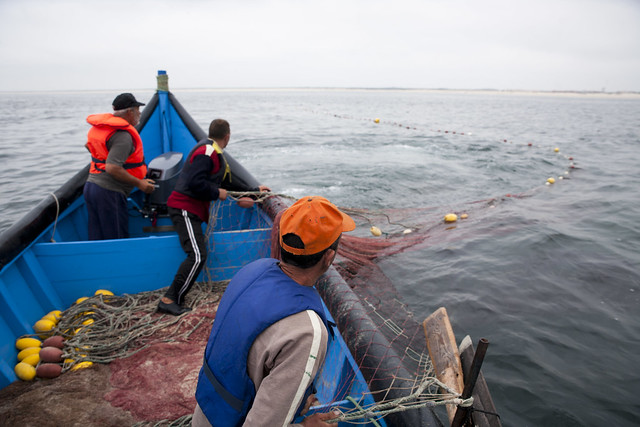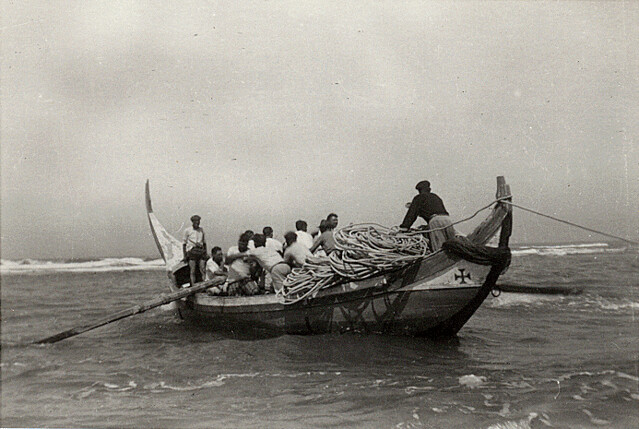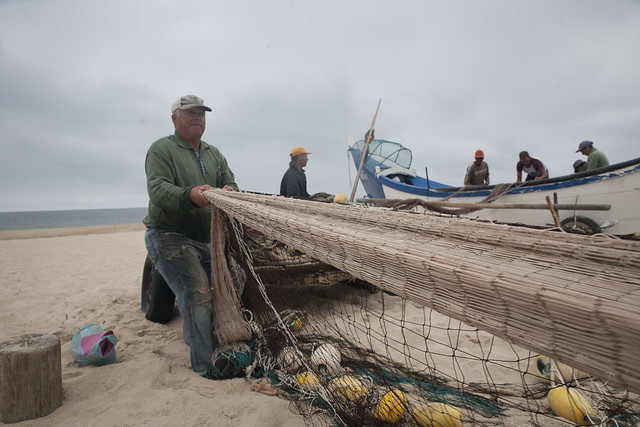Safeguarding of the Artisanal Fishing Technique “Arte-Xávega”
“Arte-Xávega” is a cherished traditional fishing technique that has been practised for centuries on Tocha Beach in Cantanhede, Portugal, and holds immense sociological and economic significance. This project aimed to celebrate, protect and promote its intangible cultural heritage through innovative cultural and educational programmes.
By studying the natural, ecological, economic and historical aspects associated with this unique fishing practice, the project sought to showcase its invaluable cultural and educational values. “Arte-Xávega” stands as one of the last examples in the European Union of artisanal and sustainable fishing carried out in accessible beach areas with abundant natural resources.
For generations, “Arte-Xávega” has been passed down orally within the fishing community, symbolising their accumulated wisdom and experience. While this fishing technique has significantly declined over time, it remains of utmost importance in the local context. Recognising the responsibility to preserve this cultural practice, the Municipality of Cantanhede took proactive measures to promote and protect it. In 2016, the Interpretation Centre of “Arte-Xávega” (CIAX) was inaugurated, with the goal of creating a home for the defence of this cultural heritage.
Through collaborative efforts with the fishing community, various initiatives have been implemented. These include the recording of social and cultural memories, the creation of educational and scientific materials in Portuguese and English, the development of a dedicated pedestrian route, the construction of a traditional “Arte-Xávega” boat, and the production of scientific illustrations showcasing the region’s marine and avian fauna. Additionally, the project includes a documentary, awareness-raising actions in schools and within the municipality, and engaging activities for diverse groups, ensuring the wider visibility and appreciation of this treasured tradition. Actions to ensure the sustainability of the activities have also been undertaken, namely explanatory visits to the CIAX and to the anglers’ warehouses and at least one recreation of the traditional form of “pulling the nets” every year.
“This project showcases exemplary practices of safeguarding the artisanal fishing technique “Arte-Xávega” through the transfer of knowledge and know-how. It addresses an overlooked area of intangible heritage, shedding light on a way of life that is at risk of being lost. It surpasses the focus on the material in making the intangible aspects more accessible”, the Awards’ Jury stated.
“With a serious methodology aligned with international criteria, such as UNESCO’s Convention for the Safeguarding of the Intangible Cultural Heritage, this project captures the essence of maritime heritage and its deep connection with nature. With the innovative utilisation of EU fishery funds, this project demonstrates its cost-effectiveness while delivering substantial benefits for the local communities and the tourism industry. The project’s replicability and sustainability make it a cost-effective model for other Mediterranean countries”, the Jury concluded.
More information
Contact: Pedro Cardoso | geral@cm-cantanhede.pt; vice-presidente@cm-cantanhede.pt | www.cm-cantanhede.pt



